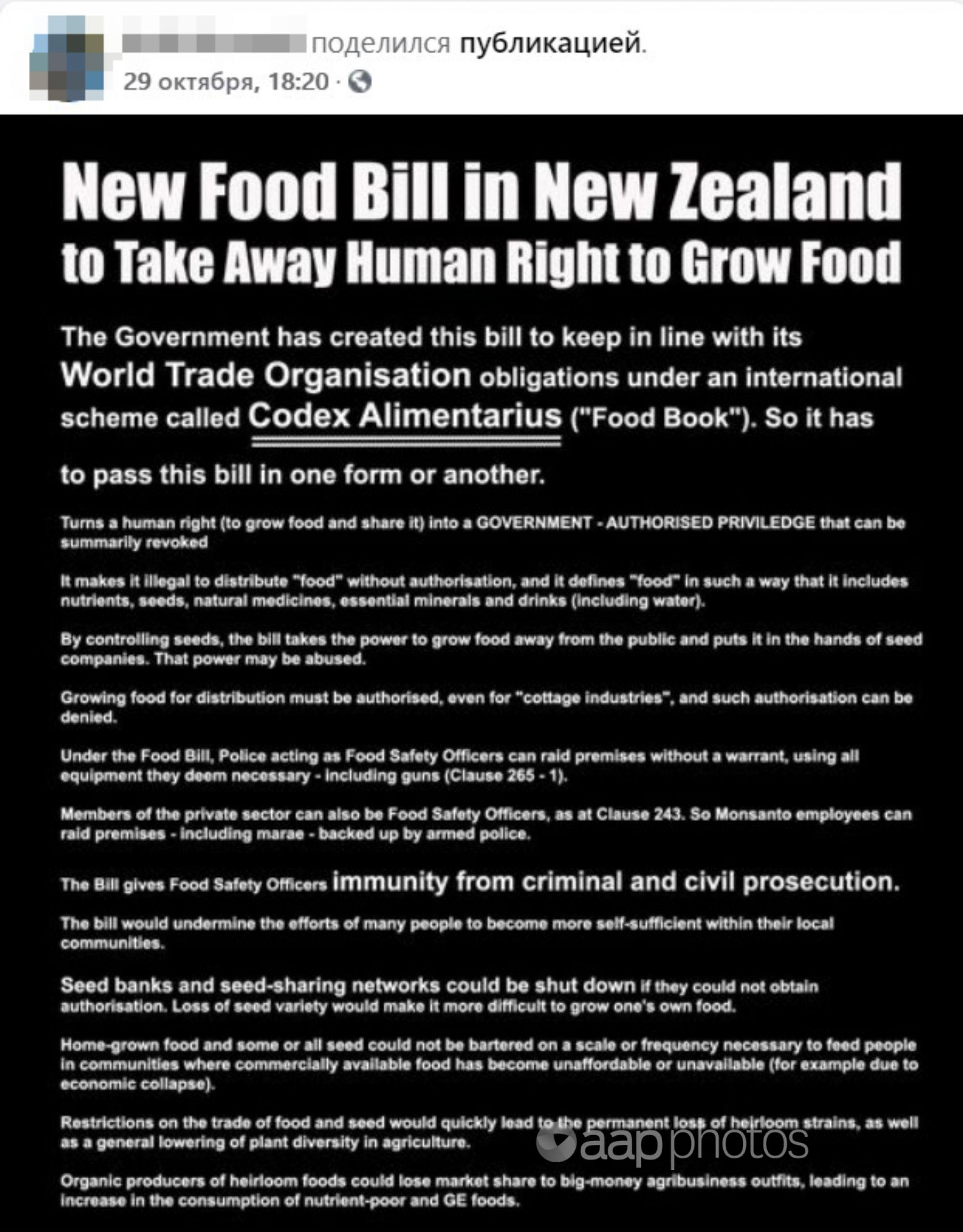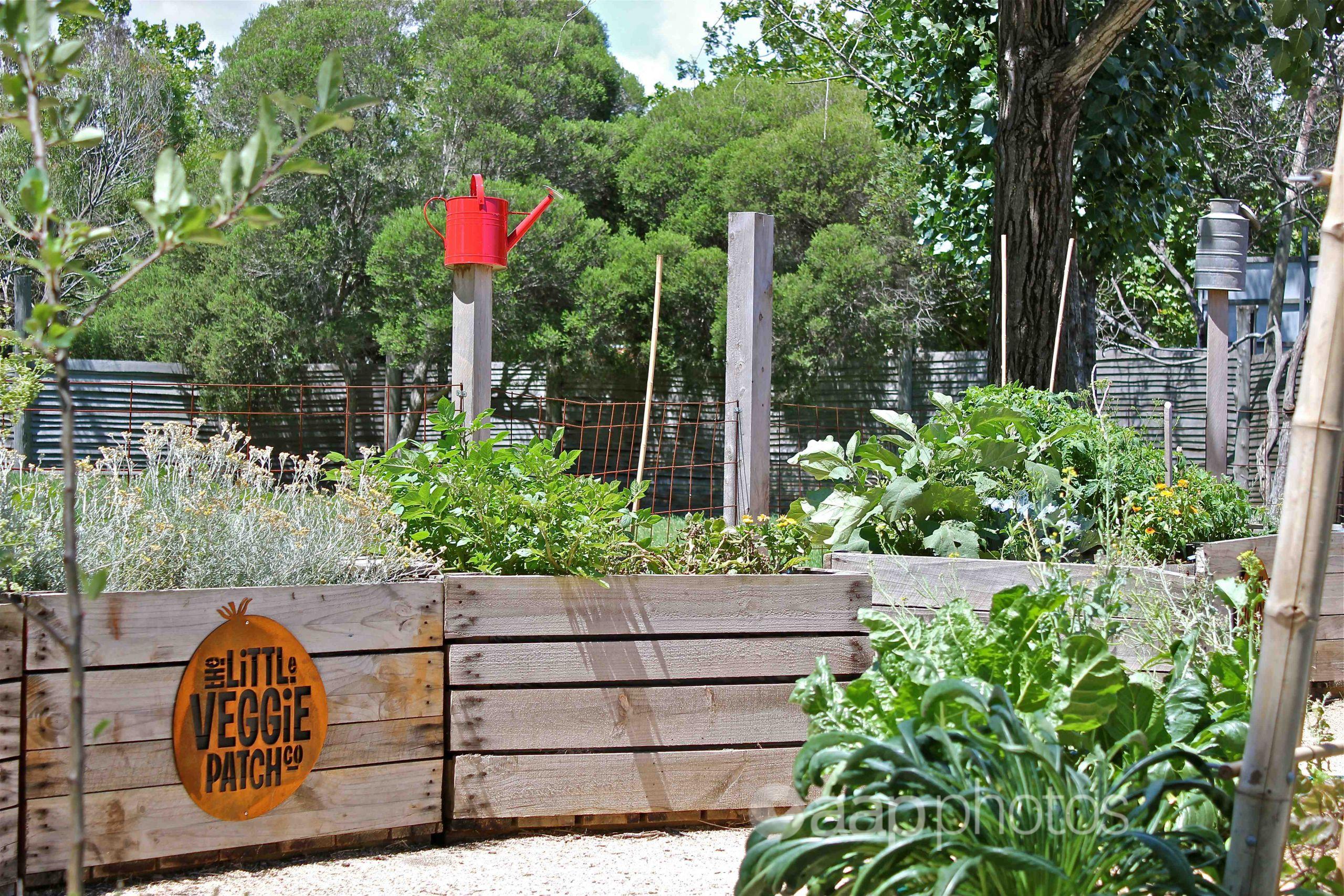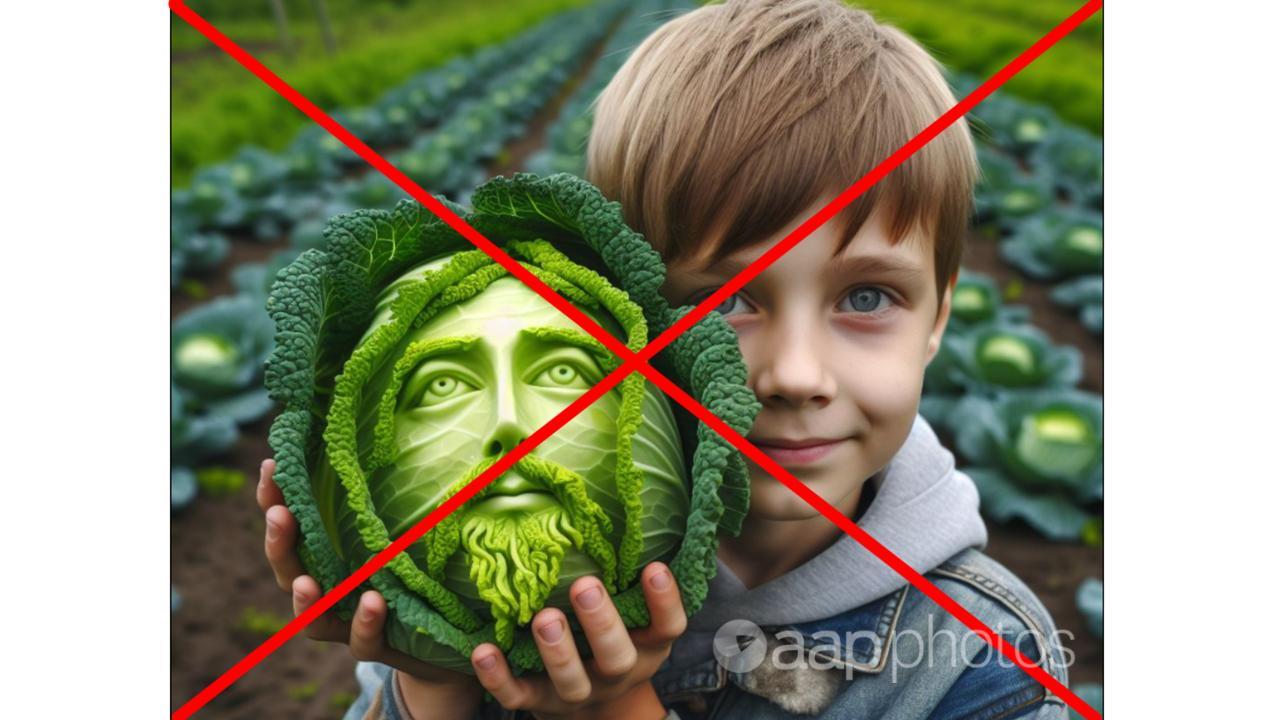The Statement
A post widely shared on Facebook claims a new food bill in New Zealand “takes away (the) human right to grow food”.
The blog post, dated October 29, begins by stating: “I was shocked to learn from a friend on the weekend that a new Food Bill is being brought in here in New Zealand. The new bill will make it a privilege and not a right to grow food.”
It goes on to say that “the government has created this bill to keep in line with its World Trade Organisation obligations under an international scheme called Codex Alimentarius (“Food Book”)”.
The post goes on to list the purported effects of the bill, including making it “illegal to distribute food without authorisation”, controlling the supply of seeds and allowing “police acting as Food Safety Officers” to raid premises without a warrant.
According to data from CrowdTangle, a Facebook-owned social media insights tool, the article had been shared more than 240 times at the time of writing.
Similar versions of the same claims were also shared direct to Facebook, with one example generating more than 300 shares, while a meme repeating points made in the article had also been shared more than 390 times since it was posted in late October.

The Analysis
Although the blog post is dated October 29, 2020, and refers to a “New Food Bill”, the legislation in question was introduced to the New Zealand parliament in May 2010 before passing into law as the Food Act in 2014.
At the time of the Food Bill’s first reading in parliament, then Food Safety Minister Kate Wilkinson said the legislation would overhaul near-30-year-old laws that related to trading in food.
It would do this by introducing a series of risk-based measures for businesses, “for example, a baked goods fund-raiser will no longer have the same regulatory requirements that a bakery has”, Ms Wilkinson said.
The Bill attracted controversy at the time, with a 2011 Stuff.co.nz article under the headline “Bill sparks garden concerns” quoting an Oamaru community gardener who expressed fears of “big companies wanting sole rights to seeds because they don’t produce seeds and you have to buy them again each year”.
However, in a press release from October 2011, Ms Wilkinson criticised “misinformation” surrounding the Bill, noting that “anonymous agitators” had been spreading “false information on the internet” about the legislation.
“Small growers who share or trade their produce with neighbours or who sell direct to consumers have nothing to fear from the new Food Bill,” she said in the press release.
“They will not face costs of any kind, or require to be registered or verified. At most, they will be supplied with free educational pamphlets which provide basic tips on how to handle food safely.”
The minister told Stuff in October 2011: “Unfortunately a small minority have decided the Bill is some sort of global corporate conspiracy designed to take control of the food chain and will lead to armed police storming the homes of private gardeners. Obviously this is rubbish.”
Neither the earlier draft versions of the Food Bill nor the Food Act include any references to restricting access to seeds, with the legislation making it clear any rules relating to nuts and seeds applied only to companies processing the goods for human consumption.
The October 29, 2020, post was made to the SGT Report site, which describes itself as the “corporate propaganda antidote” and reproduces articles on topics such as alleged “Deep State” conspiracies.
It cited the source as another site, Greed Med Info, which posts articles questioning the existence of COVID-19 alongside posts on various purported natural cures.
The latter site’s version of the Food Bill article includes a prominent “correction”, which reads: “The bill and article was published in error as ‘new’. The article is from 2011, and the bill did not pass, although some of the proposed regulations were passed and incorporated into the Food Act of 2014. These did not make gardening illegal. We apologize for this editorial oversight.”
The text in the articles appear to have been drawn from a September 2011 post on the Investment Watch blog site.
Both the articles and the Facebook posts include fallacious references to the World Trade Organization and the “Codex Alimentarius”.
The Codex Alimentarius is “a collection of standards, codes of practice, guidelines and other recommendations relative to food”, according to the UN’s Food and Agriculture Organisation (FAO) and World Health Organization.
However the international bodies state that the Codex standards are “voluntary in nature”, adding that they would need to be translated into national legislation in order to be enforceable (page 13).
None of the Bill’s readings in parliament make mention of the government introducing the new laws in order to meet any international obligations, other than New Zealand’s joint food agreement with Australia.
New Zealand’s Ministry of Primary Industries told AAP FactCheck in an email that the claims made in the Facebook meme, which mirrors sections of the articles, were “entirely false and there is no legislation supporting these claims”.
A BuzzFeed article in 2016 addressed lingering social media rumours that it was “illegal to grow a garden in New Zealand”. The ministry reiterated that there are “no laws against people in New Zealand having gardens”.
“There are no laws against people having gardens, or sharing food that they’ve grown at home. New food safety law (the Food Act 2014) only applies to food for sale, so has no effect on people sharing food,” it said at the time.
“The law also allows people sell the food they grow at home, at their farm gate or on a market stall for example, without the need to register under the Food Act.”
The Verdict
The Food Bill does not represent “new” legislation, nor does it ban gardening and home food production. The laws were introduced in 2014, and the New Zealand government said the continued claims, such as that the regulations were formulated to comply with international mandates or control production, were “entirely false”.
False – Content that has no basis in fact.
* AAP FactCheck is an accredited member of the International Fact-Checking Network. If you would like to support our independent, fact-based journalism, you can make a contribution to AAP here.
All information, text and images included on the AAP Websites is for personal use only and may not be re-written, copied, re-sold or re-distributed, framed, linked, shared onto social media or otherwise used whether for compensation of any kind or not, unless you have the prior written permission of AAP. For more information, please refer to our standard terms and conditions.


















